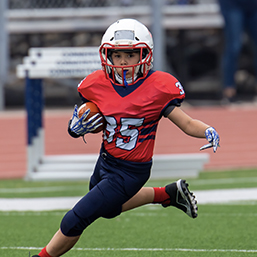
With many young athletes crossing my path, it’s not unusual to hear comments like, “They push me too much,” or “They’re always on my case about what I’m doing at practice.” Unsurprisingly, many young athletes feel pressured and pushed by their parents, but many parents believe in “the push.”
“If I didn’t push them to practice, they wouldn’t be as good as they are,” one might say. “I have to get after them sometimes.” Some parents agonize over what the right amount to push is: “How can I ever know if I am doing damage or not? I want to be there and be supportive, but sometimes they look at me like I have hurt their feelings.”
So, what is the difference between encouragement and pushing? We might think of encouragement in supportive terms, while pushing conjures up images of over-involved parents.
Research is striving to answer this question more clearly. Can an ideal level of push be possible? Authors Lauer, Gould, Roman & Pierce (2010) of a recent study on this topic suggest that parents who find a balance between challenging and supporting their children might produce the healthiest results for sports performance and parental relationships, so there may, indeed, be an optimal or ideal level of push.
A healthy push seems characterized by the value being pushed. Demanding wins or results creates undue pressure and stress on our young athletes. However, expecting hard work and commitment to sport and other life endeavors seems to benefit children who might not yet know the value of such traits in realizing their goals.
When you are looking to develop the optimal level of push on your child, consider the following:
Age and developmental stage. Younger children can be encouraged to attend their practices and put forth effort. Watch as your child becomes older, as they may resent your involvement and instead show disinterest toward a particular sport. As young athletes progress through stages in their development, they will require greater degrees of independence. Pushing should naturally give way to support and guidance.
Frequency and intensity. Even the most noble of values being encouraged can be tuned out due to too much repetition – or, worse, perceived as pressure and negatively influencing performance levels and relationships. Varying the frequency of your advice will allow the child room to learn. Remember, they need the opportunity to fail sometimes (for example, learning the value of a good work ethic) in order to truly grasp the concept for themselves.
The value of being “pushed”. Strive to encourage what the child can control (good sportsmanship, hard work, commitment) and stay away from pushing for wins and results.
Child temperament. A sensitive child may not tolerate a high (or even moderate) frequency or intensity of push without becoming stressed. Carefully monitor their response to your involvement to ensure it is appropriate.
Keep in mind, these are meant to be considerations or guidelines. As always, children are unique and your approach should reflect this fact. Education is valuable, but parental judgment must be balanced with information before the truly successful level of push is discovered.
April Clay, R. Pysch., works with many young athletes and their parents. She also offers an online Sport Parenting Course and can be reached at bodymindmotion.com.
See our related articles:
Calgary’s Child Magazine © 2024 Calgary’s Child